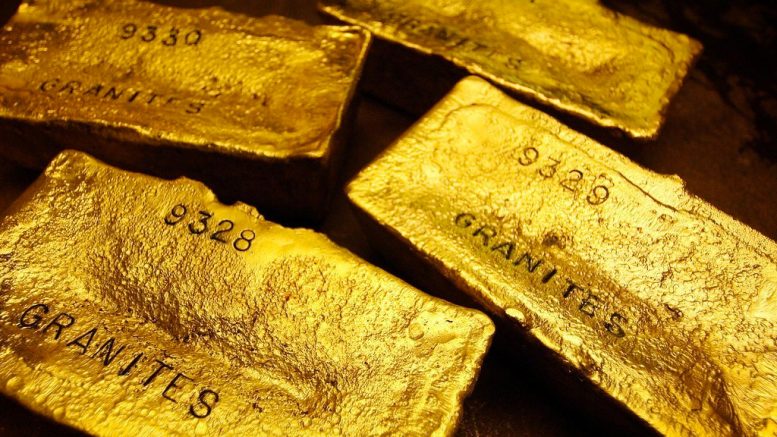An already catastrophic year for the global economy is suddenly even more uncertain as investors everywhere grapple with the likely impact of the U.S. presidential election.
With very few exceptions (New Zealand springs to mind) there is little faith amongst investors in politicians’ handling of the coronavirus pandemic, and the global mood ahead of the U.S. election wasn’t helped by the two presidential debates. With both candidates having myopic tendencies, it was perhaps appropriate that the second debate came immediately ahead of the international Mole Day celebration on Oct. 23. (Mole Day is not, however, a commemoration of near-blind mammals, nor an undercover spy, Mexican sauce or benign tumour, rather the annual celebration of one of the seven constants that define the metric system — Avogadro’s molecular mass, 6.02 x 10 to the power 23.)
The U.S. presidential election comes every four years, being held on the Tuesday following the first Monday in November, that is 2nd to 8th. As such, it always comes shortly after Halloween, which this year coincides with a Blue Moon (a second full moon in one calendar month). Among spiritual communities, a blue moon is a powerful moon and prime time for prophecy, and it only happens on Halloween every 18 or 19 years, and is extremely rarely ahead of a presidential election.
U.S. presidential elections after a Halloween Blue Moon only come once in every century. The last time it happened was in 1944, when Franklin Roosevelt was elected for an unprecedented fourth term but died shortly afterwards (having served a record 12 years, in contrast to the 31 days of the 9th president, William Harrison).
There have been 44 different people, all men, who have served as U.S. president since the office was established in 1789. Trump is listed as the 45th president, but Grover Cleveland is counted as both the 22nd and 24th president, having been elected on two, non-consecutive, occasions. This means that U.S. presidents have served an average of barely five years, with eight dying in office (four of natural causes and four assassinated) and one resigning.
Although investors are watching the election carefully, it seems unlikely that the international mining community has much reason to be frightened. The extractive industry is much more dependent upon the economic performance of China, which consumes more industrial metals than the rest of the world combined.
Fortunately, the Chinese economy continued its rapid rebound in the third quarter, with China’s GDP rising by 4.9%. The country’s economy was further boosted by the eight-day Golden Week holiday at the beginning of October, with over 637 million trips being recorded (although tourism revenue was down 30% from the same period in 2019).
Chinese imports reached a record in September, up 13.2% year-on-year, with significant increases in purchases of iron ore, agricultural commodities and semi-conductors, in particular. Chinese exports are also rising at their fastest rate so far this year, and the country’s stock markets have reacted to the positive trends, reaching a record value of US$10 trillion in October.
After the ‘America First’ rhetoric and hawkish posturing of the Trump administration, the Chinese government has been widely assumed to favour a change in president. This seems unlikely, to me, as Beijing is nothing, if not long-sighted, and the less intense, more multi-lateral approach of a Joe Biden administration would likely lead, ultimately, to unified market action against China by democratic nations. This scenario must surely worry China’s president, Xi Jinping.
Mining in the U.S. will be impacted, of course, by their choice of leader, not least through domestic fiscal and monetary policies over the next four years. Trump is also more favourably disposed towards the extractive sector, especially coal, but both men are likely to espouse infrastructure projects and other investments to stimulate the economy.
Whether Trump’s abrasive stance or Biden’s more conciliatory approach, the gold market is not likely to be impacted one way or the other by the U.S. electorate’s choice of president.
Rhona O’Connell of StoneX Group Inc. (previously FCStone) recently described herself as “bullish for gold” regardless of the vote’s outcome. O’Connell said the re-election of Trump represented continued geopolitical risk and heightened tension with China, while a Democrat administration might lead to a ‘blue wave’, and consequential increase in taxes and a likely weakening of the dollar.
Whoever sits in the White House, an end to the current bull market for gold is only likely to come about when the market has absolute confidence that Covid-19 is under control, as well as rising interest rates. The first seems unlikely until the second quarter of 2021, and interest rates will surely remain low for at least a year. Moreover, with Chinese wealth returning, expect a return of Sino jewellery buying next year after this year’s dramatic decline in sales.
— Dr. Chris Hinde is a mining engineer and the director of Pick and Pen Ltd., a U.K.-based consulting firm he set up in 2018 specializing in mining industry trends. He previously worked for S&P Global Market Intelligence’s Metals and Mining division.


Be the first to comment on "The View from England: US elections are unnerving for global investors"